Secrets of the Saqqara Tomb is a two hour documentary about a 2018 dig in Egypt where archeologists discovered a previously unknown 4,400-year-old tomb. The tomb belonged to someone named Wahtye, who – as we discover right along with the experts – was a high-ranking priest who served under Pharaoh Neferirkare during the Fifth Dynasty of ancient Egypt. This is the story of an all-Egyptian team of archeologists and diggers who are racing against time to uncover what they believe to be one of the most significant finds in history.
Bahir Yeusuff: Only that’s not really the whole story is it? Because the linguists who were translating the hieroglyphics on the walls may have stumbled upon a much bigger mystery. There is good reason this documentary is called Secrets of the Saqqara Tomb. But I’m getting ahead of myself.
Umapagan Ampikaipakan: Way ahead of yourself. But we promise, no spoilers.
Now, don’t get me wrong, I’m a huge fan of National Geographic and History, but there just hasn’t been anything I’ve seen lately that had me this riveted. The running time of this documentary took me by surprise. I didn’t know how they were going two fill two hours. I wasn’t sure if they would be able to hold my attention. But there was something about the way director James Tovell tells this story and paces his reveals that was just outstanding.
BY: Ive fallen out of love with National Geographic, with History, and with The Discovery Channel. There’s been such a pivot towards entertainment that they do less and less of these types of big specials…
UA: … This one felt like real science. This felt like a real documentary. Does that make sense?
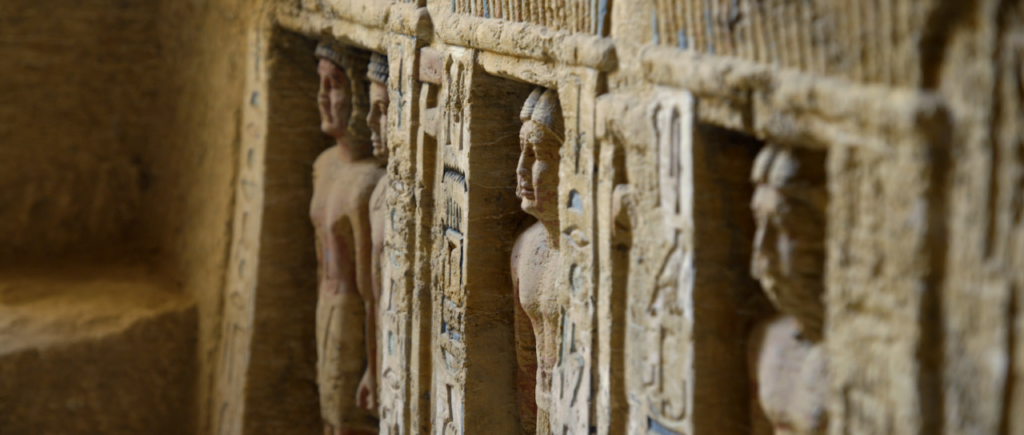
BY: Absolutely. I remember how Dr. Zahi Hawass would frequently show up on one of those channels with an ancient Egypt special. Once a year? Twice? Secrets of the Saqqara Tomb really feels like something of a throwback to that.
For me, the pace of the documentary was really helped with the introduction of a ticking clock that counted down the 6 weeks to Ramadhan. It was a signal that the current excavation “season” was coming to an end. And it meant that the team was working double time because they were running out of funding and wouldn’t receive any more unless they made a major discovery. There was a real urgency, not just out of excited interest in the current tomb they were working on, but also in trying to find more artefacts in order to convince the money people to continue funding their work.
UA: That ticking clock was a genius conceit. Made all the more relevant by the fact that it is a “clock” that’s specific to Africa and the Middle East, where the month of Ramadhan has an impact on every aspect of their lives. And while it was indeed a race against time, Secrets of the Saqqara Tomb never once tripped into the kind of sensationalism that we’ve come to expect from some of those other channels.
This was the kind of documentary that I would watch with my parents on a Saturday afternoon. If I was in my early teens, this is precisely what would set me down a rabbit hole of research into Egyptian history, and myth, and folklore.
The big difference being that Secrets of the Saqqara Tomb is far more authentic than anything I watched growing up. Because this is a story that’s told by the Egyptians themselves: “We are the people who can best give voice to our ancestors. Because they are our ancestors, we are one step closer to them than the foreigner.”

BY: And you know, that really comes through in this. There is such respect and love that these researches give to the departed. Yes, they are excited when they find a casket, but they tread with such care that it almost feels like the remains are family, which I guess in some ways, they are.
Like when Amira Shaheen, the professor of rheumatology wishes salam to the remains they found. Like when Hamada, one of the researchers of the dig site, first sees Wahtye’s casket. There is joy and excitement yes, but also a reverence. It was so beautiful to see. This isn’t just a gig for these guys. It isn’t just some dead mummified remains in some strange land. This is the land of their ancestors, and these are their remains. It was amazing. It wasn’t clinical, it wasn’t surgical. It was human. It was emotional.
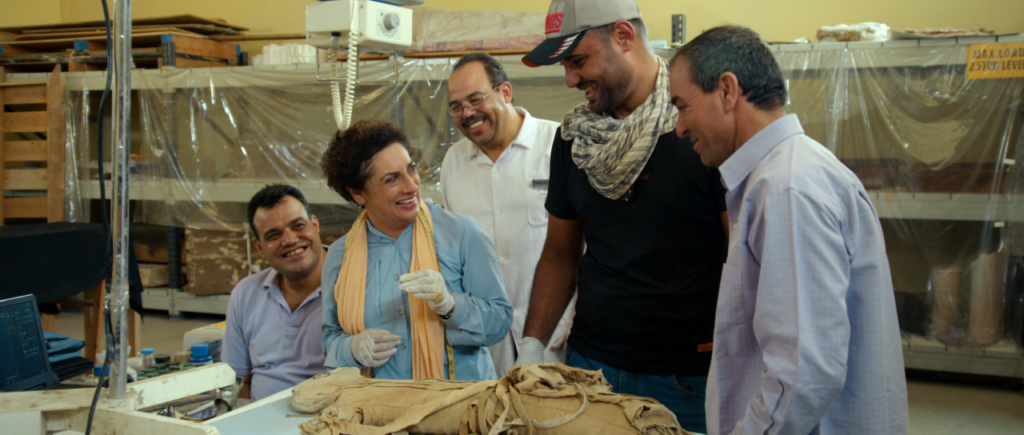
UA: The other thing that makes this movie unique is the way it dives into the lives of these doctors, and archeologists, and Egyptologists, and labourers. We learn about their families. We see how much this land and its history means to them. And what feels like unnecessary digressions really pay off in the last 10 minutes of the documentary when James Tovell ties the narrative together in a truly ingenious way. Suddenly, Wahtye becomes a real person, with a real connection to these individuals thousands of years later.
I know it’s such a cliché to say that people are people, that we’re all the same, irrespective of where or when we come from. But being able to look back centuries in this way really is a comforting reminder of that fact.
BY: There was also so much here to show that the right people for this job may just be the Egyptians. I’m not saying that the American, or English, or Polish teams of archaeologists don’t afford the same level of respect, but with this documentary, you see that Egyptian point of view. They see archaeology as a duty of care to their history and their culture.
I loved every second of this. Watching the team’s excitement at discovering the first every mummified lion cub. Or putting together three pieces of a statue that had been found over the course of a year. I had my hands in the air at several moments throughout this documentary. I had a wide grin on my face as I shared the joy of these Egyptians.
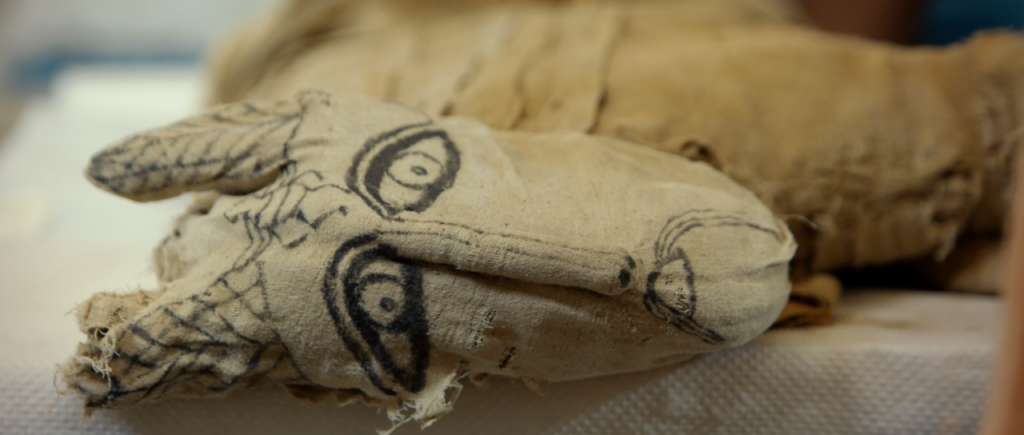
UA: I’ve never been to Egypt. But I’ve always been fascinated with their history ever since my young impressionable mind was exposed to the charlatan that is Erich von Däniken and his ludicrous theories about how aliens built the pyramids. There was a brief moment, when I was about 11 or 12, when that sounded like the coolest thing. Of course the more I read, the more I became enthralled with actual history, with Egyptian ingenuity, and science, and engineering, and with how these “Gods” once ruled over men. It is a part of world history that is barely touched upon in our school syllabus over here.
BY: I think aside from reminding us of the majesty of ancient Egypt, this documentary, rather embarrassingly, made me realise how out of touch I was with the people working on these sites. That was my big takeaway. That these Egyptians not only see this as a job, but as an endeavour to be proud of. It is a call to action in a way, that this is something worth doing. So much of my (misguided) respect has always been to the European archaeologists, those researchers who “saved” these artifacts from being lost to the sands of time, of looters, and of destruction. But to see three generations of labourers working the site, tells me stories that I have never heard.
I’ve seen the bust of Cleopatra in Berlin. I’ve seen the ancient walls that were torn down, and transported, and reassembled in the British Museum in London. But it wasn’t until this documentary did I want to go visit the museums in Egypt.
(I’m also reminded of my annoyance that my elder sister got to visit the pyramids when she was invited to accompany my late grandmother almost 30 years ago. She was there with her damn “Famous Five” books, and I was left behind, elbow deep, digging for bones in my own backyard. It should have been me!)
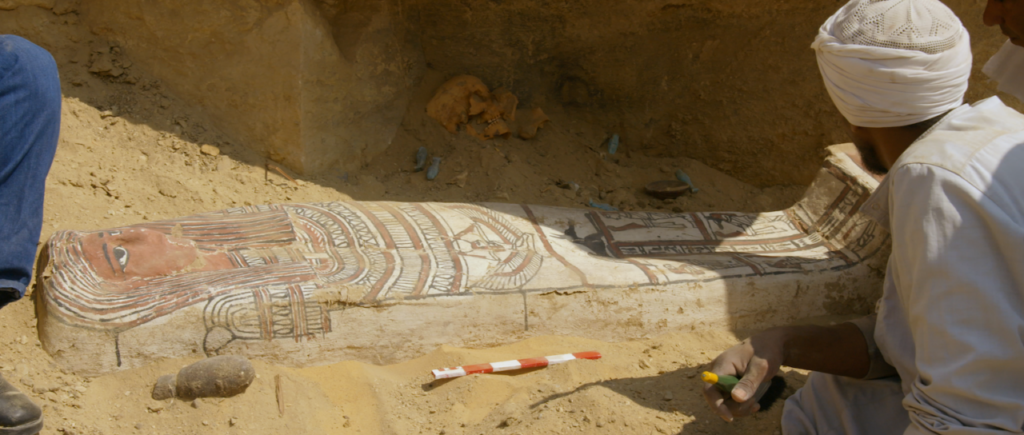
UA: It was educational. It was engrossing. It was enthralling. But the one word that stood out in my mind after it was over was “substantial.” Too often, as we make our way through museums, we look at history as something disconnected from us. It’s almost alien. “Look at how those people lived, and ate, and farmed. Look at their homes. Look at their clothes. Look at how different they were.” The reason that Secrets of the Saqqara Tomb is so important – besides awakening my curious inner child – is because it doesn’t relegate history to the past. It makes it a living and breathing component of the lives of these Egyptians. It reminds us the bones in the tomb and the person digging them up four thousand years later are one and the same.
You know, I think I might watch it again.
BY: At the end of the day, if you have ever been curious about ancient Egypt, then you owe it to yourself to watch Secrets of the Saqqara Tomb. This isn’t a dry, historical documentary about Tutankhamen, or Cleopatra, or Ramses II. This is a contemporary documentary about how, even now, researchers are finding things that will blow you away. I will never get over how beautiful and vibrant the colours are on the walls of the tombs they find. It’s not a recreation. It’s not a reimagining. These walls, that the camera sees for the first time, have not been touched in 4,400 years. It really is like stepping into a time machine.
And yes, I think I will watch this again too.
Secrets of the Saqqara Tomb
Netflix
114 minutes
Director: James Tovell

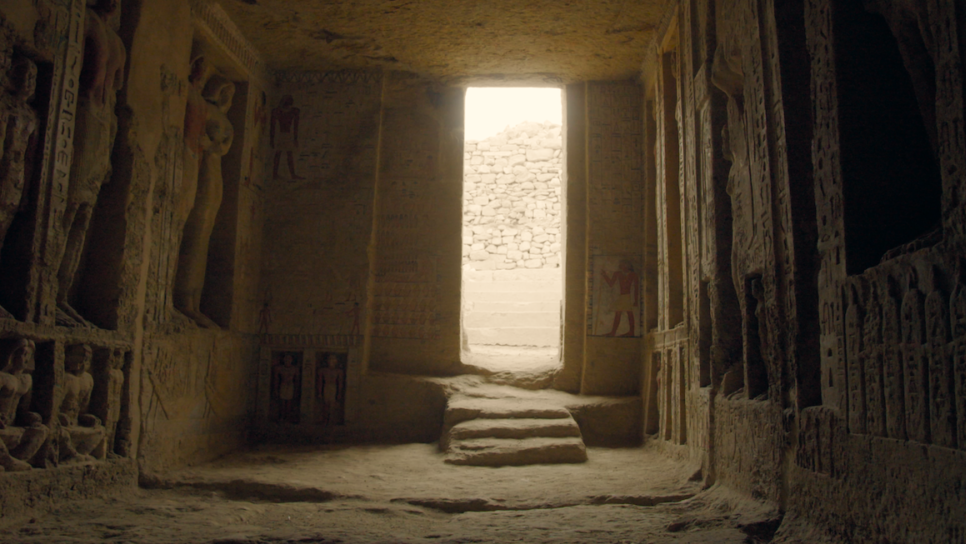

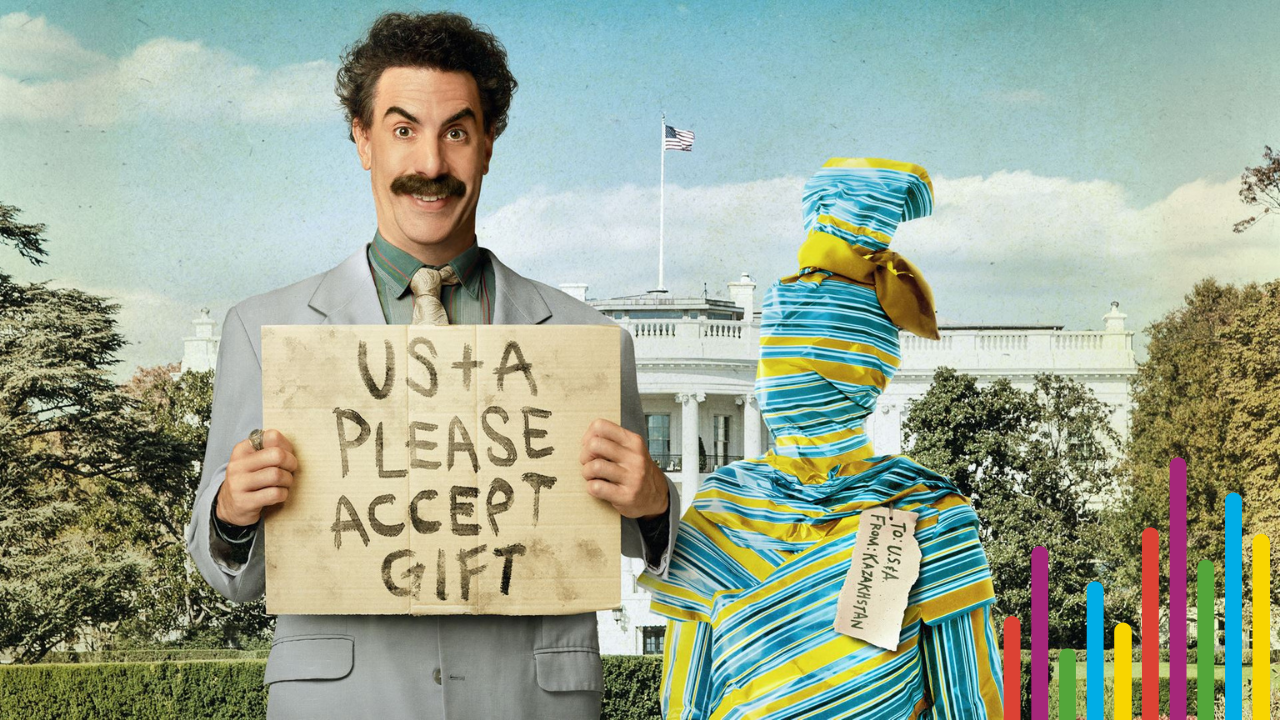
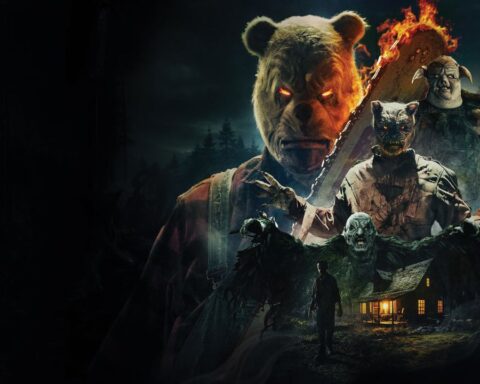
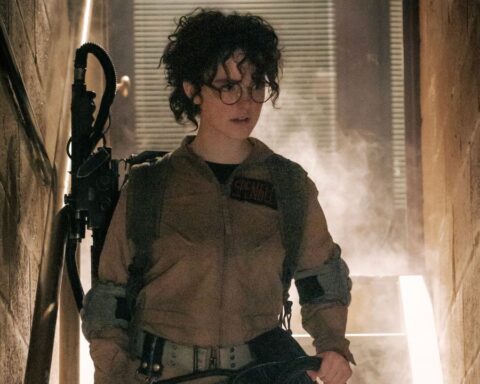
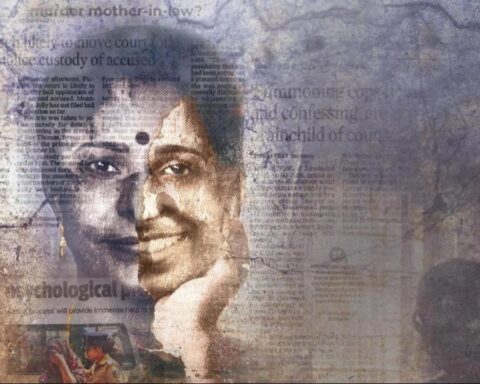
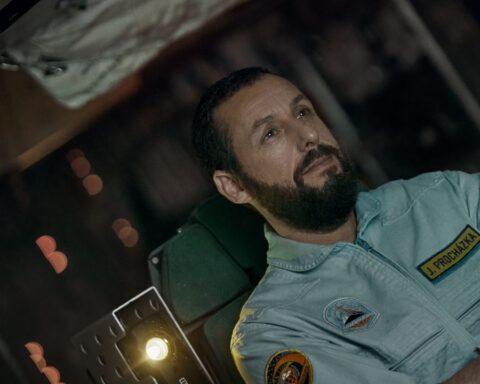

Follow Us